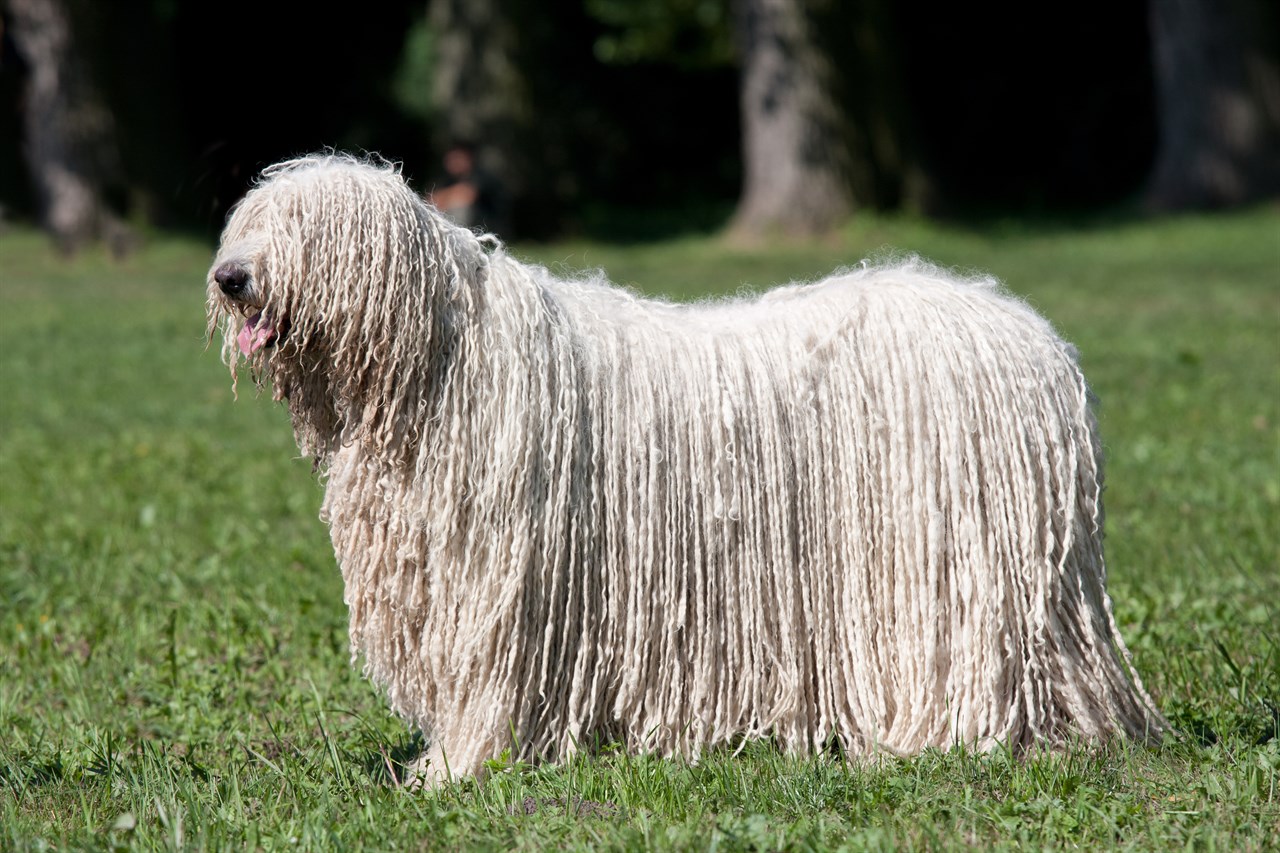Barking Habits of the Komondor

The barking habits of a dog breed can significantly impact its suitability as a pet, especially in urban or close-knit living environments. Understanding the barking tendencies of the Komondor is essential for potential owners to make an informed decision about bringing one into their home.
Alertness and Protective Nature
Komondors are natural protectors with a strong guarding instinct. This instinct makes them highly alert and attentive to their surroundings. They are quick to detect unusual sounds or movements, and they are not hesitant to bark to alert their owners to potential threats.
Vocal Guardians
Komondors are known for their deep and booming bark, which they use as a means of communication and protection. When they sense something amiss or when they perceive a stranger approaching their territory, they will often bark to warn and deter intruders.
Barking as a Deterrent
In their traditional role as livestock guardians, Komondors used their barks to intimidate predators and keep them away from their flock. This protective behaviour has carried over into their domestic life, and they may display the same vocal tendencies when guarding their home and family.
Do Komondor Dogs Bark a Lot?
Yes, Komondor dogs tend to bark, and they can be quite vocal. Their protective nature and vigilance mean they are more inclined to bark in response to perceived threats or unfamiliar situations. However, it's important to note that not all Komondors are the same, and individual differences in barking tendencies can occur.
Managing Barking Behaviour
Managing a Komondor's barking behaviour is essential to ensure they do not become excessive barkers. Here are some tips for managing their barking.
- Socialisation: Early and continued socialisation can help reduce excessive barking due to fear or insecurity. Exposing them to various people, animals, and environments can make them more comfortable in different situations.
- Training: Implement consistent training methods to teach your Komondor when it is appropriate to bark and when to be quiet. Commands like "quiet" or "enough" can be helpful in controlling their barking.
- Provide Mental Stimulation: Komondors are intelligent dogs, and mental stimulation through puzzle toys and training exercises can help keep their minds occupied, reducing the likelihood of excessive barking due to boredom.
- Exercise: Ensure they receive enough physical exercise, as a tired Komondor is less likely to engage in excessive barking out of restlessness.
- Positive Reinforcement: Use positive reinforcement to reward quiet behaviour. When they stop barking on command or when they choose to remain quiet in certain situations, offer praise and treats.
- Consult a Professional: If your Komondor's barking becomes a persistent issue despite your efforts, consider seeking advice from a professional dog trainer or behaviourist with experience in addressing barking problems.
In conclusion, Komondors have a natural inclination to bark due to their protective and alert nature. While this is an inherent part of their temperament, it can be managed and controlled through proper training, socialisation, and positive reinforcement. Understanding their barking tendencies and addressing them early on can lead to a well-behaved and content Komondor in a domestic setting.